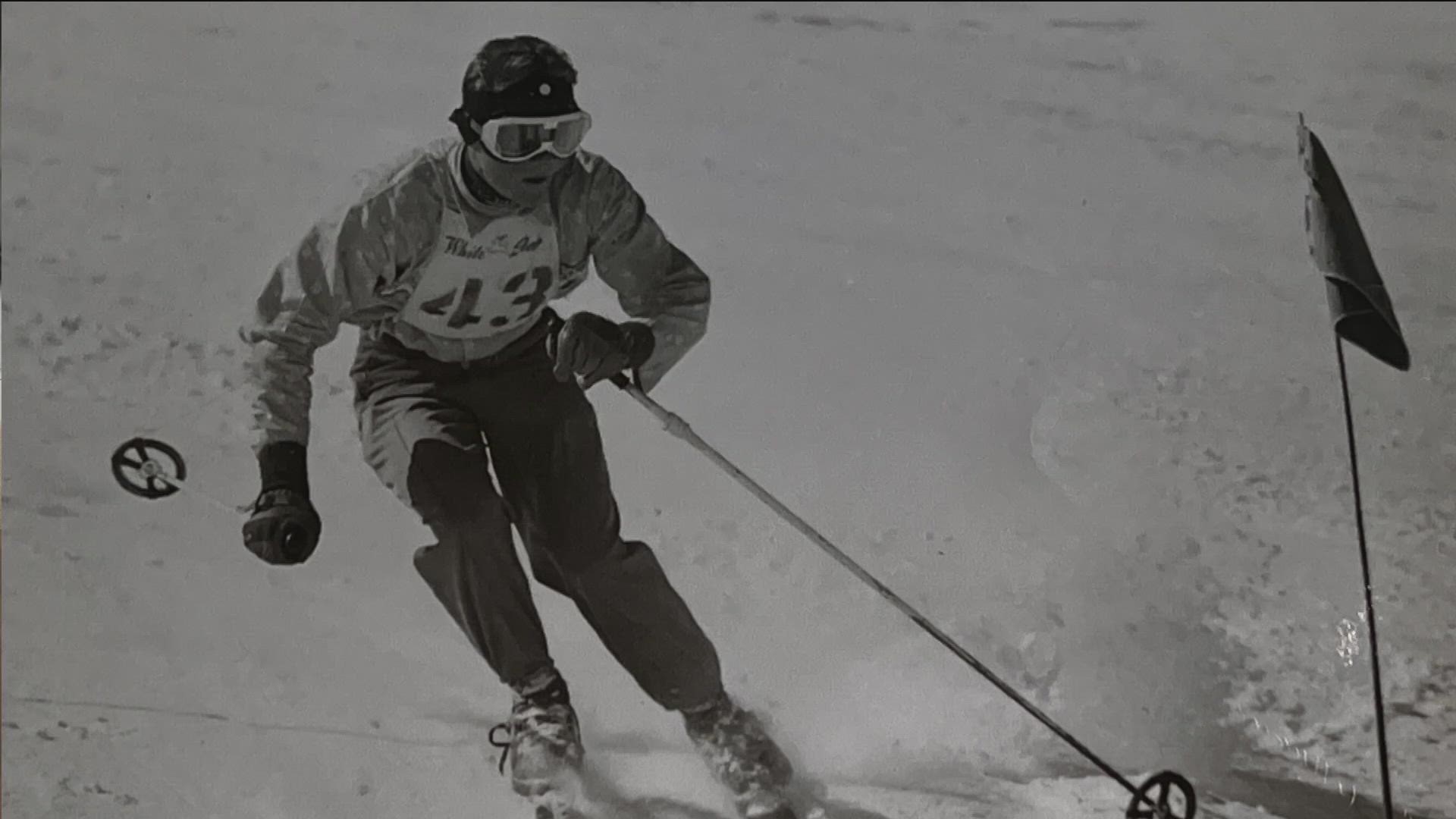AUSTIN, Texas — An Austin woman and her family have closure after her father's remains were identified more than 50 years after he went missing, thanks to new DNA technology.
For decades, Jeanne Gaida has only ever known her father through mementos. Since she was young, Gaida has collected photos, magazine and newspaper clippings, letters, military accolades, ski awards and ski-related items that belonged to her father, Gardner Smith.
"Gardner Smith has always been a mystery to me my whole life," Gaida said.
Gaida knows enough about her father to garner several Google search results. Smith was a world-class skier in the 1950s. He was also an Army veteran and crafty with his hands. In her possession, Gaida has letters between Smith and companies interested in inventions of his time, such as a special pole-grip for ski poles and double-lens goggles.
"He was disciplined. He was called a maverick, and he was called a humanist," Gaida told KVUE. "He was considered to be – he could've been one of the greats."
Most photos of Smith show him skiing down snowy mountain terrain at a young age, then later for the University of Nevada in Reno, then competitively for income post-education. While in the Army, Gaida said it's her understanding that Smith was granted a furlough to pursue the 1956 Winter Olympics.
From what Gaida has gathered, it was an injury that set Smith back from an Olympic run. It's also what she believes led Smith, who came from a wealthy and prominent family, down a slippery slope.
Gaida said despite knowing of her father's achievements, she also knew him as the man who, in her mind, abandoned her and her mother in California when Gaida was 1 year old, in 1963.
"He would chase the winter around the globe," Gaida said, noting that Smith left to, presumably, ski.
Gaida said she never heard from her father again after he disappeared from her family's life.
Gaida, who now lives in the Hill Country outside Austin, described herself as a rebellious teenager, grieving life without a father and wondering where he'd gone.
Gaida often asked her family for details, but they were far and few between.
"It was frustrating," Gaida said. "I was 8 years old, flipping through these photos like, 'Wow, wow, but where is he?' And they would just say, 'It's not your business.'"
"[I thought], 'I hope he’s not having a second life somewhere because my family and I are pretty great and he’s missing out,'" Gaida said.
But now Gaida knows information she never thought she'd receive.
The Colorado Bureau of Investigation (CBI) recently used DNA testing and genetic genealogy to identify Smith as a "John Doe" whose body was found on Independence Pass in Colorado in June 1970.
Independence Pass, a highway of windy roads, is closed each fall and winter because of the danger it poses to drivers. How Smith got there is still unknown, but he was alone. Investigators do not believe it was suspicious.
Gaida said she got the call about three months ago. CBI first called her cousin to ask if she had a family member who had been missing for a long time. Gaida's cousin shared that she had an uncle who went missing and he has a daughter who lives in Austin.
Gaida had her DNA taken and sent to investigators. On Feb. 2, she received the news.
"'You’re a match,'" Gaida said the investigator told her. "'It’s your father. This is Gardner.'”
Holding back tears, she described not knowing how her father could leave after discovering the love of having a family of her own.
"Why would you do that? It doesn’t make sense," Gaida said. "And that’s where it’s like, it had to be something out of his control."
Now Gaida said her attitude about her father has completely shifted.
She said it's now clear that Smith suffered from an undiagnosed mental illness. When his body was found, he was in unkempt clothing, leading investigators to believe he was homeless. An article written about Smith for a ski magazine in the 1980s also detailed how Smith did not have a home but was sleeping on friends' couches.
Gaida said she and her family feel closure.
"It’s always been an open wound. It’s been an open wound for so long," Gaida said.
The family plans to spread Smith's ashes in the mountains later this year – the place Smith loved to be the most.
"I didn’t think that we’d ever find him," Gaida said.
Gaida said she is now on the proper road to healing.

